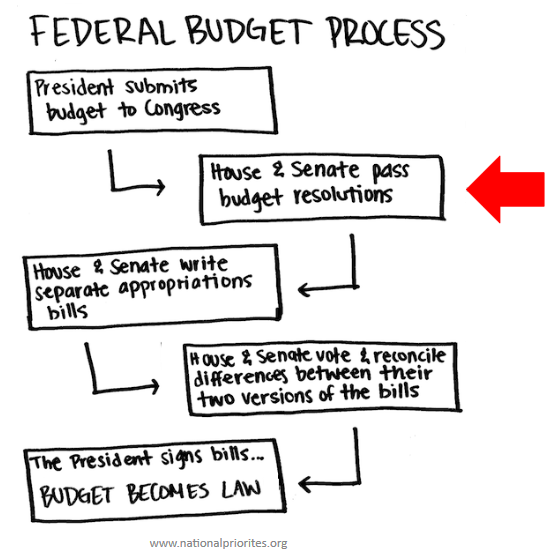The Budget Deal: Do We Have a Budget Yet, and Then What?
By
Becky Sweger
Posted:
|
Budget Process
If you’ve been paying attention, you know that the budget conference committee – formed as part of the deal that ended October’s government shutdown – reached a deal.
So the U.S. is back to normal, we have a budget, and we can breathe a collective sigh of relief. Actually...
No Budget Yet
The deal announced by Senate Budget Chair Patty Murray and her House counterpart Rep. Paul Ryan set the top-line discretionary spending amounts for our current budget (FY 2014) and for next year’s budget. Here’s what needs to happen before we officially have a budget for the fiscal year that began more than two months ago:
- The House and Senate will vote on the top-line discretionary spending numbers negotiated by Murray and Ryan. The House will take up the vote this week and then send the bill over to the Senate.
- House and Senate appropriators – the lawmakers who allocate money to agencies - will use those top-line numbers to finish work on individual budget bills. In other words, now that the appropriators know how much they can spend, they can hammer out the details.
- Most likely, the individual budget bills will be combined into a single bill called an omnibus, which will have to pass both chambers.
- President Obama will sign the omnibus into law, and the U.S. will have a budget for 2014.
What Comes After a Budget?
Having a 2014 budget will be a great step towards alleviating some of pervasive uncertainty of the last several months. But the deal left out many things that Americans say they want in a budget. It doesn’t close tax loopholes, preserve Social Security, or reduce military spending. It doesn’t address the long term unemployment benefits that expire at the end of 2013.
Finally, the conference committee decided not to include the debt ceiling as part of its recent negotiations. Remember the debt ceiling? We’ll hit it in early February, and Congress will have to act.
Happy New Year
Even though we didn’t ring in the fiscal new with a budget, we’ll likely have one shortly after the calendar year changes. That’s good, and we should be relieved. But as work begins on the next budget, we must make sure lawmakers incorporate the priorities that were left behind in 2014.
